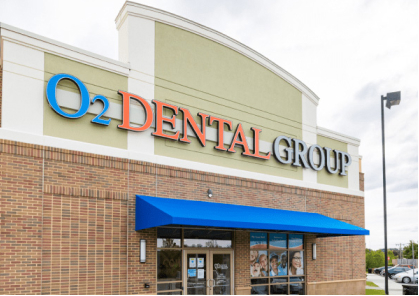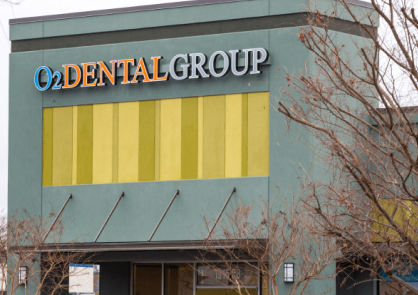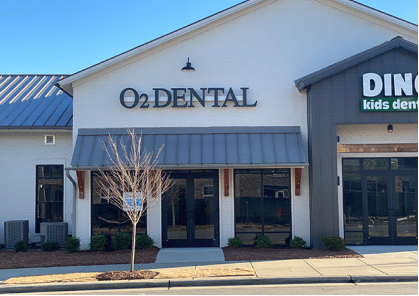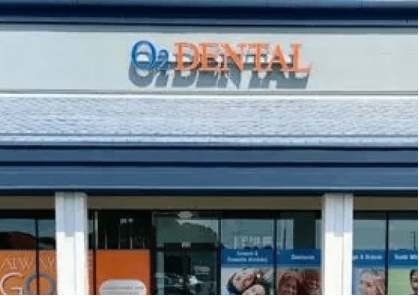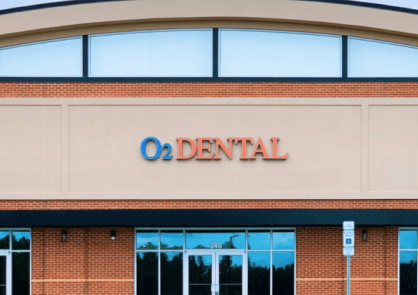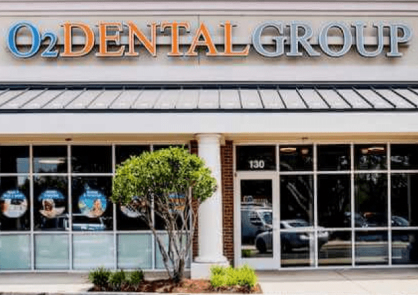Dental Cleanings
Dental cleaning is a procedure that removes debris, plaque, and tartar deposits from the teeth and gums. While brushing and flossing can prevent plaque build-up, both cleaning methods are ineffective against tartar. What’s worse, tartar deposits are an ideal environment for harmful oral bacteria.
This is why scheduling a teeth cleaning appointment twice yearly is essential to maintaining good oral hygiene. Your dentist will recommend specific teeth cleaning procedures depending on your situation.
Types of Dental Cleanings
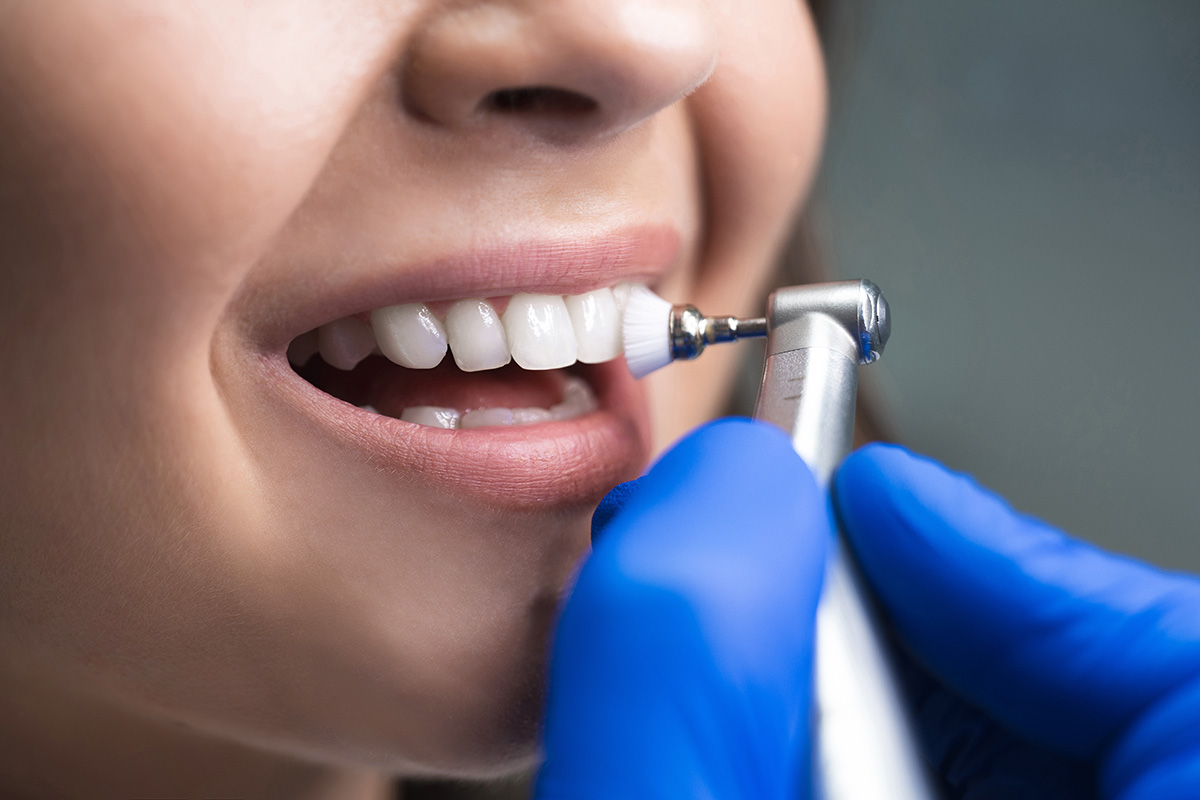
Prophylaxis Cleaning
Prophylaxis cleaning is also known as regular teeth cleaning. It’s a routine procedure to prevent cavity formation and gum disease in healthy teeth. Your hygienist will use special dental tools to assist with plaque removal and tartar removal from the surface of your teeth. Note that prophylaxis cleaning removes tartar and plaque deposits above the gum line.
Scaling and Root Planing
This procedure is known by its other name: deep cleaning. If left unchecked, bacteria in the tartar deposits will weaken your gums, causing them to detach from your teeth.
These gum pockets allow bacteria to travel further down the tooth and infect its root, causing tooth loss. Scaling involves gently pushing the gum tissue away from the root of the tooth and then using a tool to remove the tartar from the root of the tooth. Root planing provides effective tartar removal for build-up from the teeth’s surface and below the gum line.
Once the tooth is tartar-free, your dentist smoothens its roots to help the gums reattach to the teeth and prevent tartar build-up. This entire process is known as root planing.
This procedure is usually completed in multiple visits with one side of mouth being dedicated to one appointment. Patients undergoing scaling and root planing often require local anesthesia to eliminate discomfort and pain.
Scaling in the Presence of Gingivitis
This procedure is recommended for people with advanced/severe gingivitis, that do not yet require the scaling and root planing procedure. It is more involved than a prophylaxis cleaning because there is considerably more plaque and tartar to be removed. Often, patients that have not been to a dentist in several years may require this procedure. Your hygienist will use the same special dental tools that is used in a regular cleaning, but it will likely dedicate more time for this procedure.
Periodontal Cleaning (Periodontal Maintenance)
Periodontal cleaning is recommended to maintain patients that have had scaling and root planing. Deep cleaning removes tartar and plaque build-up from the teeth’s surface and below the gum line. However, unlike scaling and root planing, periodontal cleaning is completed in one session. Your dentist/hygienist may recommend coming in for this procedure every 3 to 4 months.
Periodontal cleaning is reserved for patients with gum disease, known as periodontitis that have undergone the scaling and root planing procedure.
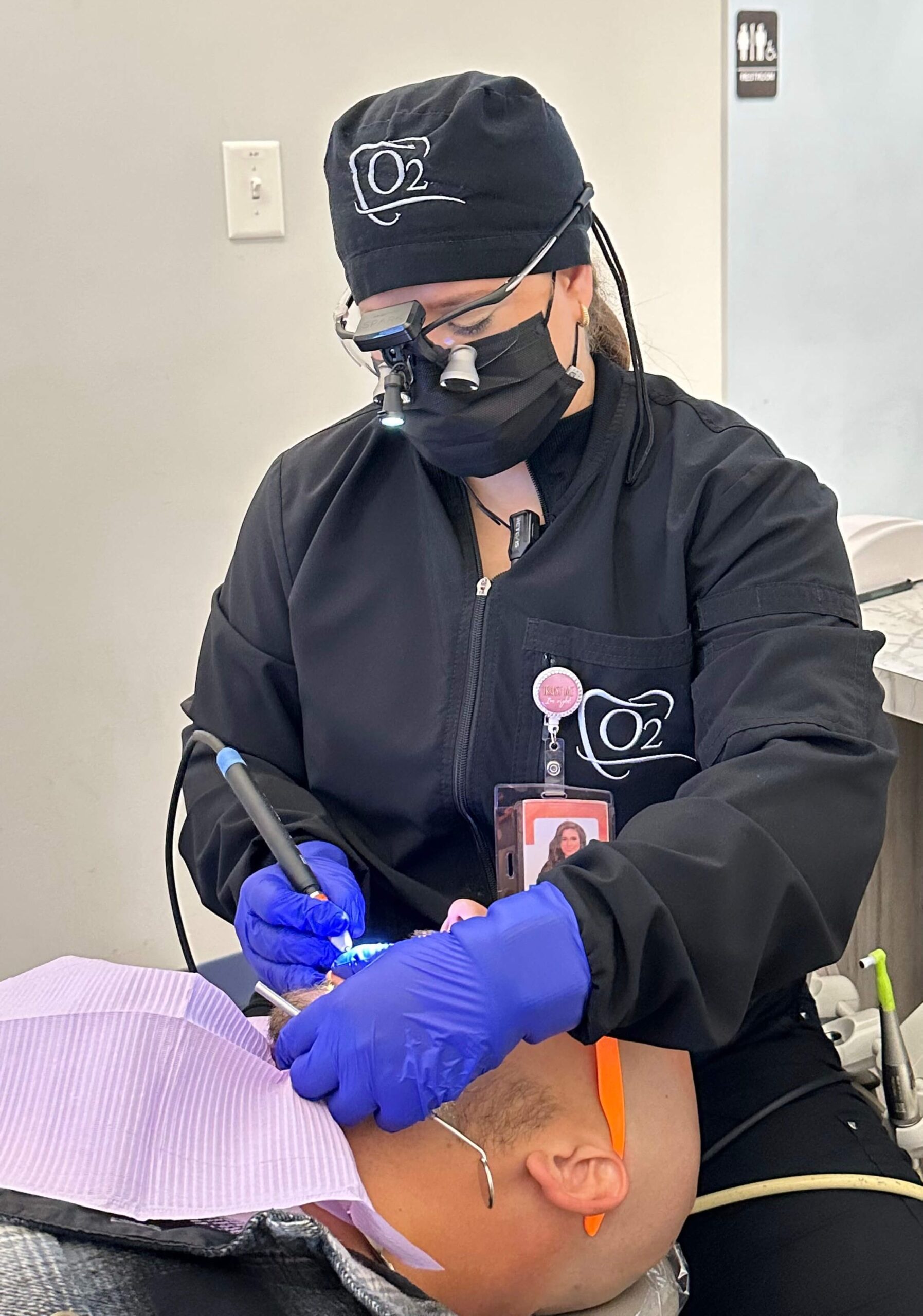
Gross Debridement Cleaning
Gross debridement cleaning is reserved for teeth with high plaque levels and tartar build-up. Excessive plaque buildup can interfere with our ability to do a proper examination or prophylaxis cleaning and must be removed before an examination or cleaning can be done.
Since tartar hardens over time, removing it might be challenging, especially if the patient has difficulties maintaining good oral hygiene. To remove it, the hygienist will use an electric scaler which uses ultrasonic technology to loosen the tartar before removing it by prophylaxis. Although not common, our dentist might administer local anesthesia to reduce discomfort if you have sensitive gums and teeth.
How Do Dental Cleanings Work?
Teeth cleaning might sound imposing, especially if you haven’t made an appointment with your dentist for a long time. However, there’s nothing to fear. The teeth cleaning process is non-invasive and relatively painless. Here’s what you can expect during a cleaning:
Oral Exam
Your dentist will do an exam, using a small mirror to examine your teeth and gums. The oral exam helps your dentist decide the type of cleaning appropriate for your teeth. For example, they may recommend scaling in the presence of gingivitis instead of prophylaxis if they find signs of moderate to severe gingivitis.
Scaling
Using a scaler and a small mirror to observe hard-to-reach areas, your hygienist will perform teeth scaling to remove plaque and tartar build-up from your teeth. They might use an electric brush or an ultrasound tool to loosen the tartar before scraping it off.
Anesthesia might be administered if the hygienist needs to scale your teeth beneath your gum line.
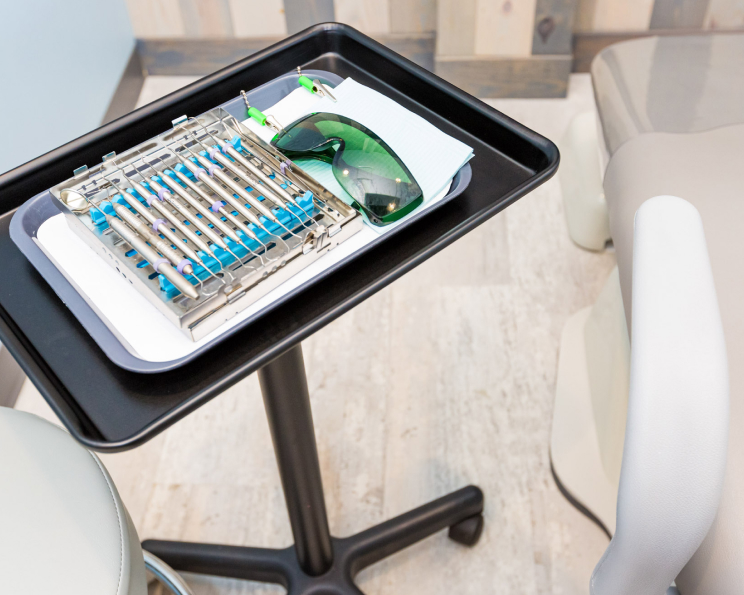
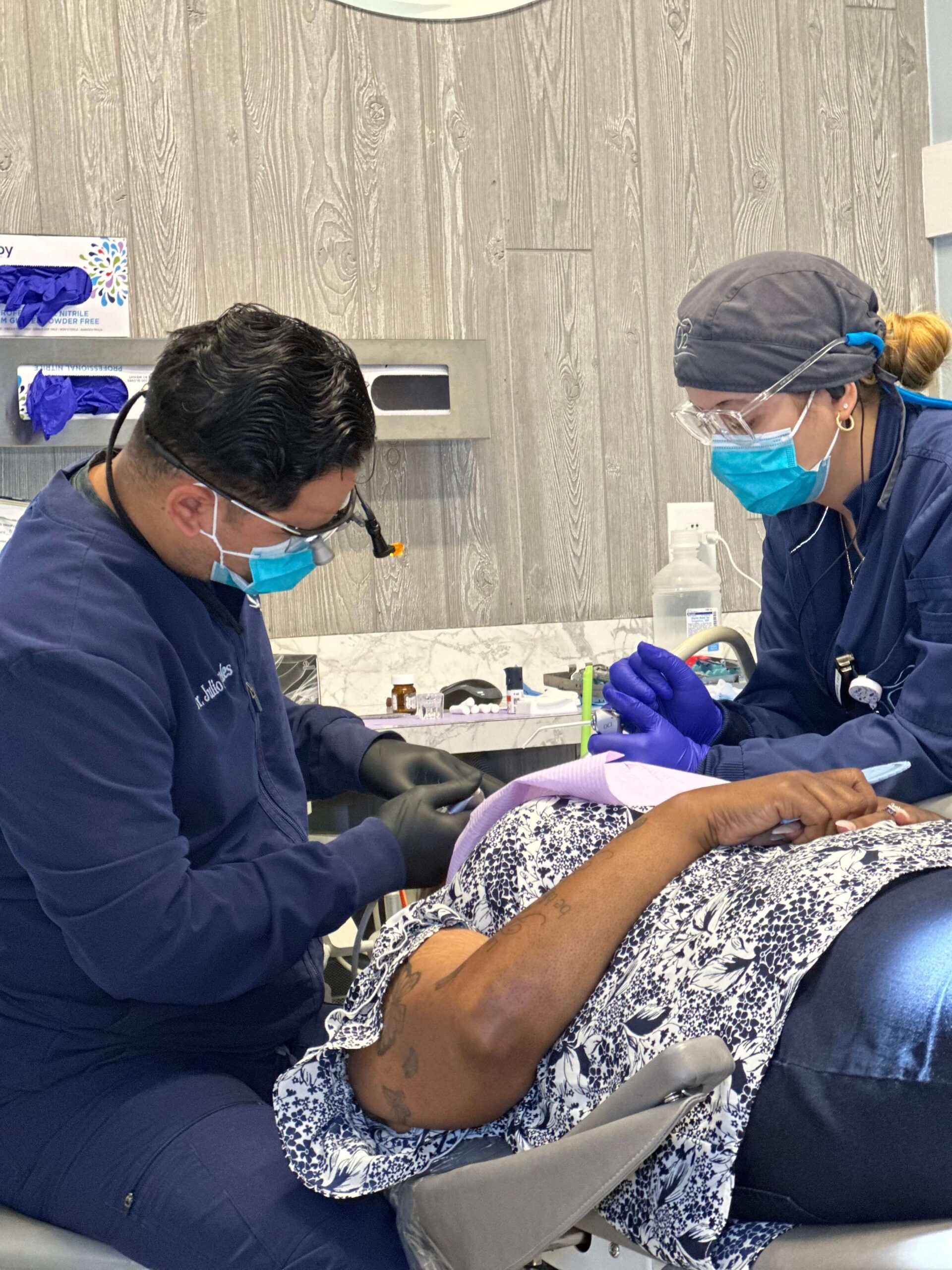
High-Powered Brushing
High-powered brushing is the next stage of the teeth-cleaning process. Your hygienist will use an electric brush and a gritty toothpaste known as prophylaxis paste to scrub your teeth. Brushing removes any remaining tartar and polishes the enamel.
While the procedure is straightforward, it’s time-consuming because the hygienist has to ensure that your teeth are free of tartar and plaque in hard-to-clean areas of your teeth.
Deep Flossing
Your hygienist will wrap up the cleaning with a deep flossing session. Flossing will remove any residual plaque and cleaning paste between your teeth. Moreover, your dental hygienist will give you dental hygiene tips on proper cleaning and pinpoint potential trouble areas to focus on.
Rinsing
Once your hygienist confirms that your teeth are clean, they will clean your mouth using a water spray and remove the water with a dental suction tube.
Why Do You Need a Dental Cleaning?
Dental extraction consists of the following steps:
Avoiding sugary foods, brushing, and flossing are essential to maintaining good oral hygiene. However, dental cleaning is equally as important. Here’s why:
The Importance of Dental Cleanings
Gum Disease Prevention
Gingivitis prevention is a major benefit of a routine cleaning visit. Regular teeth cleaning can prevent gum afflictions such as gingivitis and periodontal disease. On the other hand, deep cleaning can halt the spread of gum disease if the disease has already taken root. Moreover, periodontal maintenance can restore your teeth to a healthy state and prevent tooth loss which is common with periodontal disease.
Lowers the Risk of Chronic Illnesses
If left unchecked, oral bacteria can compromise other body parts and increase the risk of serious chronic conditions such as oral cancer, respiratory complications, and cardiovascular diseases. Regular cleaning reduces your risk of developing chronic illnesses by preventing oral bacteria from bypassing the gums, infiltrating your bloodstream, and causing systemic infection in your body.
Prevents Tooth Decay
While regular brushing and flossing are effective against plaque, you need regular dental appointments to prevent and eliminate tartar build-up. Tartar deposits provide an ideal environment for oral bacteria. Over time, the bacteria produce acids that erode the enamel and cause progressive tooth decay.
Your dentist can prevent tooth decay by removing tartar deposits and polishing your teeth to reduce tartar build-up in the future.
Early Detection of Potential Problems
The routine oral exam before teeth cleaning can be a lifesaver. Remember, oral cancer, gingivitis, and periodontal disease don’t form overnight. Regular oral exams allow your dentist to detect potential problems and act before they can spiral out of control.
Boost Your Confidence
Few things can deplete your confidence more than bad breath, yellow or missing teeth. While regular dental cleaning can prevent tooth decay and halitosis, it also has the potential to restore oral health. An experienced dentist can use specific teeth cleaning procedures to eliminate bad breath and restore decaying teeth.
Tips for Dental Cleaning Aftercare
While a cleaning is beneficial, your teeth might be vulnerable and sensitive after the rigorous cleaning session. The dental aftercare tips below will help you manage sensitivity and increase your teeth’s recovery rate.
Watch Your Diet
Watching your diet for at least 6 hours after the dental cleaning would be best. For instance, coffee, tea, and red wine can stain your teeth if you consume them soon after cleaning. Moreover, hot/cold foods and drinks might increase tooth sensitivity and cause discomfort.
Brush Gently
Remember, your teeth undergo high-powered brushing during a cleaning. To avoid tooth sensitivity and gum injuries, use a brush with smooth bristles to gently clean your teeth.
Rinse with Salt Water
Keeping your mouth clean is crucial to a quick recovery. Rinsing your mouth with salt water regularly after the cleaning will soothe your gums and prevent possible infections.
Inspect Your Teeth Regularly
You should observe your teeth regularly after a dental cleaning. Look for warning signs such as discolored gums and extreme tooth sensitivity. While a little bleeding and tooth sensitivity is normal after a cleaning session, you should visit your dentist if these issues last more than two days.
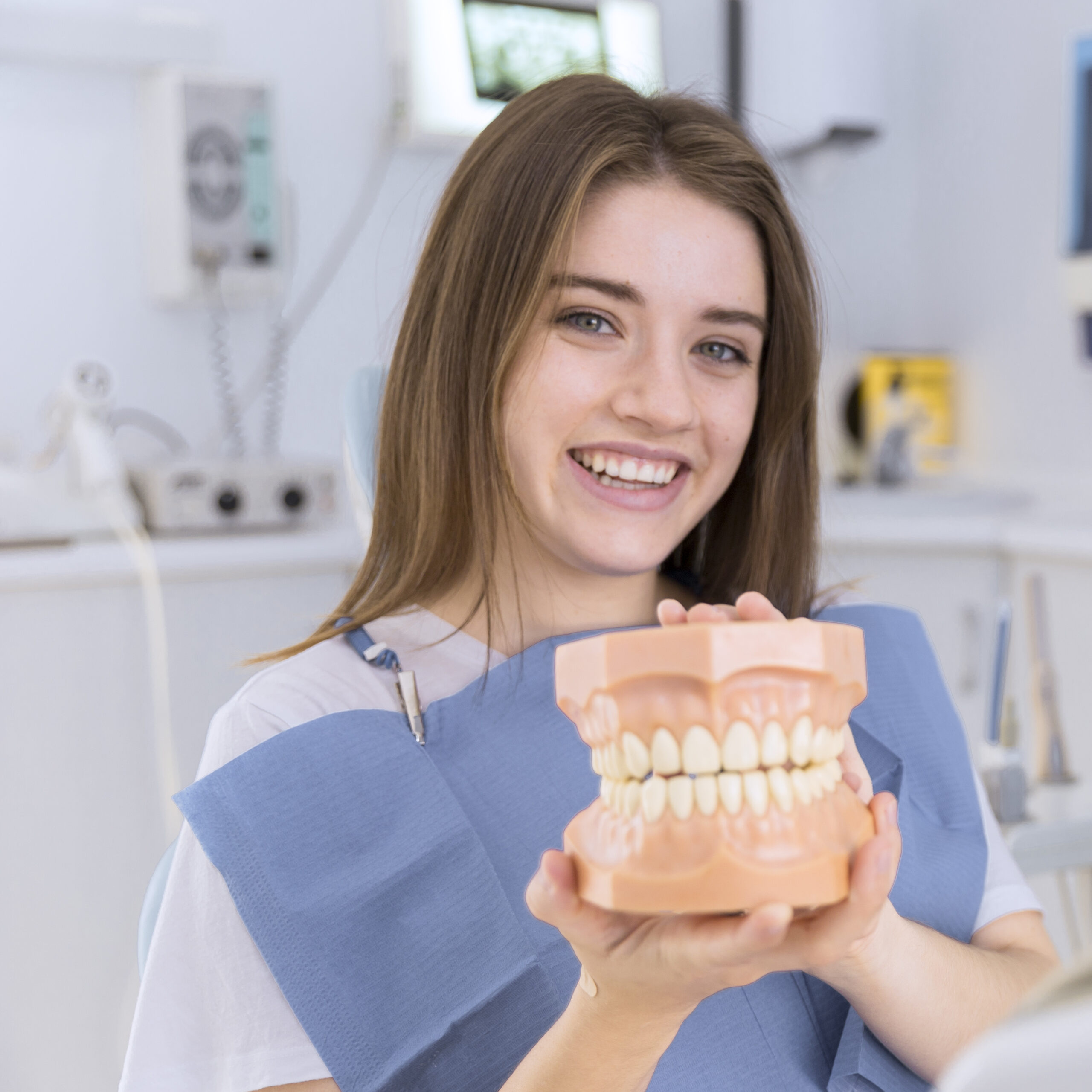
Regular dental cleanings are essential to maintaining good oral hygiene, preventing chronic illnesses, and boosting confidence. Making regular dental cleaning appointments will improve your quality of life and reduce your risk of developing tooth decay, gingivitis, and periodontal disease. Prevention is better than cure: request an appointment with your dentist today.
We Offer Dental Cleanings and Teeth Cleaning in These Cities
Schedule Today!
We look forward to meeting you. Call us or request an appointment online to set up your first visit. We’ll be in touch soon.

